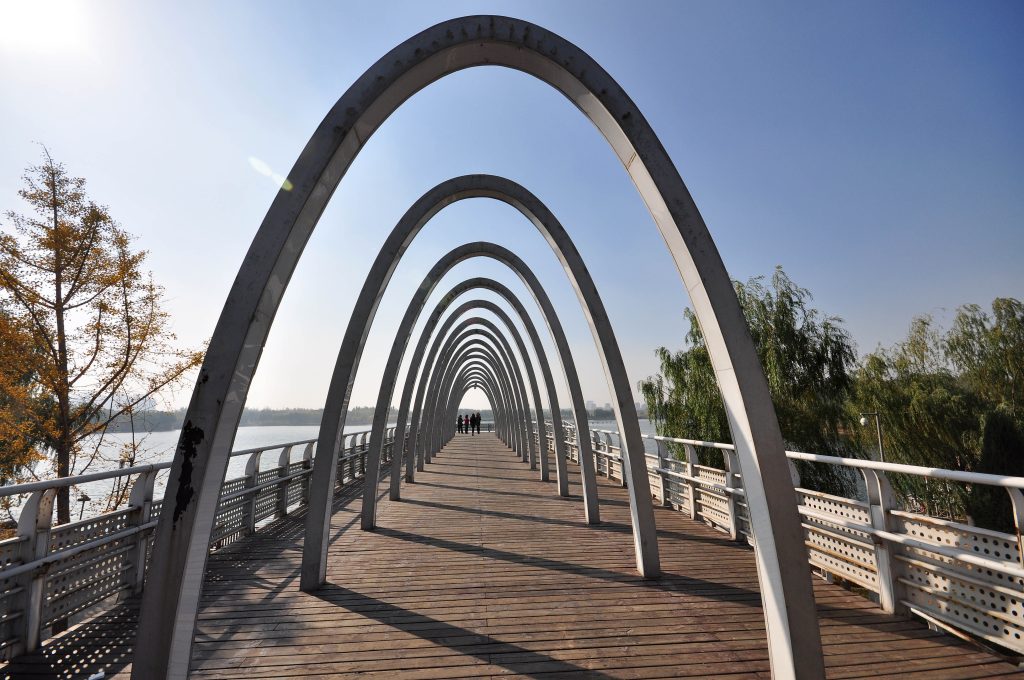SeaWorld has opened its first theme park outside of the US, a $1.2 billion aquatic life park in the United Arab Emirates in collaboration with the state-owned developer Miral.
Notorious for its treatment of orcas and other marine mammals, SeaWorld’s new park does not feature these creatures, but instead showcases animals such as dolphins and seals, which are also criticised by animal rights groups for their captivity and use in entertainment.
The new venture gives SeaWorld a presence in a rapidly growing international tourism hub, allowing it to continue its efforts to rebrand following years of controversy and accusations of animal cruelty.

SeaWorld and Miral declined multiple interview requests from The Associated Press. They also did not answer written questions or grant AP journalists access to the park.
SeaWorld faced intense scrutiny in 2013 after the release of the documentary “Blackfish”, which portrayed the story of Tilikum, a 12,000-pound orca that killed trainer Dawn Brancheau in 2010, and suggested that orcas become more aggressive in captivity.
The documentary caused a significant decline in visitor numbers across all three of SeaWorld’s US parks, ultimately leading to a $65 million settlement to investors who claimed that the company had misled them about its financial performance after the release of the documentary.
Under increasing pressure, SeaWorld discontinued its orca breeding program and live performances involving the whales in 2016, also announcing plans to build a park without orcas in Abu Dhabi, UAE that same year.

The company’s promotional materials say it is committed to rescuing and rehabilitating animals, and that a full-time staff of veterinarians ensures they are well cared for.
Last year, its Orlando theme park opened a facility to care for Florida manatees that were dying from starvation in their natural habitat. The company says it has raised $17 million to support hundreds of research and conservation projects around the globe.
Scott Ross, chairman of SeaWorld, remarked in a statement that SeaWorld Abu Dhabi is poised to redefine the standards of excellence for marine life theme parks worldwide by implementing a fundamental design principle of prioritising animal care and well-being.
The international brand of American Humane, known for the end-credit certifications that no animals were harmed in the making of films, has certified the new park in Abu Dhabi.
Meanwhile, SeaWorld’s US facilities have been certified by the Association of Zoos and Aquariums, viewed as the gold standard for humane certifications.
However, the Abu Dhabi park has yet to apply for accreditation, according to Jennifer DiNenna, director of accreditation at AZA. Despite these recognitions, SeaWorld continues to face criticism from some quarters in response to the “Blackfish” controversy and related animal welfare concerns.
“SeaWorld is part of an industry built on the suffering of intelligent, social beings who are denied everything that’s natural and important to them,” said Jason Baker, senior vice president of international campaigns at People for the Ethical Treatment of Animals, or PETA.
“In nature, dolphins live in large, complex social groups and swim vast distances every day. In captivity, they can only swim in endless circles inside tanks that, to them, are the equivalent of bathtubs.”

SeaWorld Orlando was cited for breaching animal welfare laws when the US Department of Agriculture inspected the site in December 2020. During the inspection, the department discovered a dolphin with substantial “deep rake marks”, as well as evidence of excessive levels of chlorine in tanks housing additional dolphins.
While there have been no reports of animal abuse or welfare violations at the new Abu Dhabi park, there have been no clear answers about the treatment of dolphins, and questions about the facility’s animal care practices remain unanswered.
The SeaWorld park in Abu Dhabi serves the United Arab Emirates’ larger ambitions to develop Yas Island, an area that the country hopes will become a rival to theme park capital Orlando.
Yas Island is already home to a Formula 1 circuit, a water park, and a Warner Bros. theme park, and has enlisted celebrities like Jason Momoa and Kevin Hart to promote the destination.
The former Middle East politics professor at Durham University, Christopher Davidson, suggests that such developments are part of the UAE’s non-oil diversification strategy, and that partnerships with internationally recognised brands like SeaWorld are likely to boost tourism numbers.

As a tribute to Abu Dhabi’s cultural heritage, SeaWorld has created a themed “realm” of traditional houses and sailboats, recalling the days when the emirates relied largely on fishing and pearl-diving before the discovery of oil.
In addition to its entertainment-driven attractions, the facility will contain an in-house research centre that studies aquatic life in the Persian Gulf and supports the conservation of local species, such as the dugong, an endangered creature similar to the manatee.
Although acknowledging that there is some good work done in animal rescue and rehabilitation, former orca trainer Jett maintains that companies like SeaWorld should focus more on leading the development of global policy and addressing the needs of animals living in the wild, rather than focusing on keeping animals captive.
